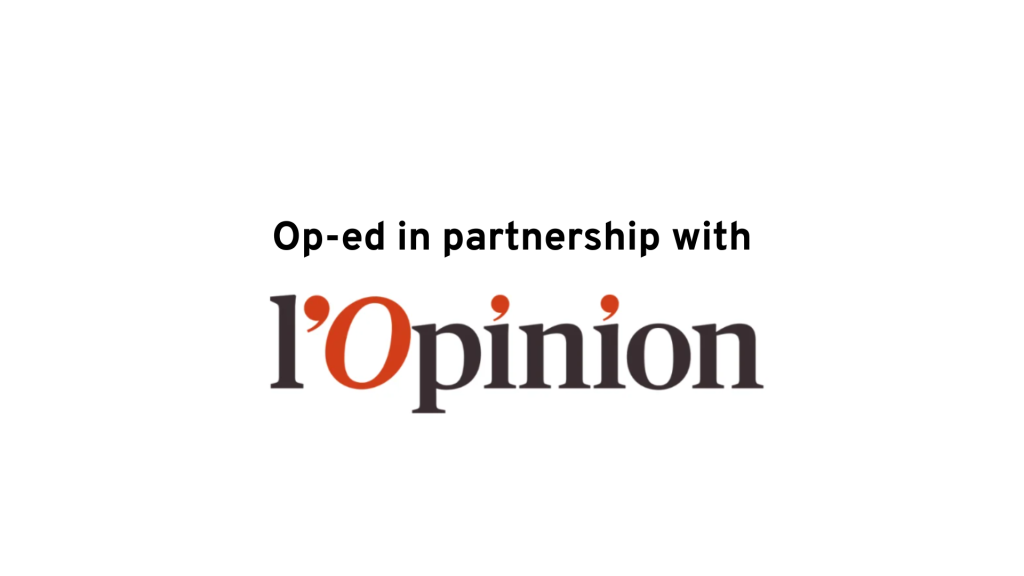From one world to another

On the eve of a breathtaking end to the year in terms of upheaval (Vladimir Putin’s re-election until 2030, the mainstreaming of AI and ChatGPT, the war between Israel and Hezbollah in Lebanon, the Russian advance in Ukraine, the rise of populists in the European elections, internal political crisis in Germany and France, election of Donald Trump, fall of Bashar al-Assad), how should we view the future? For a long time now, I have no longer shared the optimism of those who want to believe that the world is not changing, that the West still largely dominates, that markets, trade and finance continue to solidly structure our liberal and democratic destiny. For our world, founded in 1945 by Westerners for the benefit of Westerners, is fracturing more deeply than ever before.
This world was based on four pillars: the liberal market economy, representative democracy, multilateralism, and the relatively benevolent leadership of the United States. The result, for eight decades, in the West alone, was unparalleled prosperity, political stability conducive to technological innovation, the longest period of peace and stability since the Pax Romana, unrivalled influence in global governance, and the continued appeal of the American dream and the European model to billions of people around the world. However, these pillars have been slowly but dangerously cracking for the past twenty years. Liberalism experienced its first setback with the 2008 banking crisis and the utopia of ever-increasing globalisation for ever more countries; it is now being structurally challenged by the explosion of protectionist tendencies within globalisation itself. Democracy and the rule of law are in deep crisis in the old democracies themselves, in the United States as well as in Europe. Multilateralism is frozen in its powerlessness, whether it be the UN, the IMF, or even the climate COPs, which, despite their new approach, are unable to reach an effective global consensus. Finally, since 2003, the United States has been afflicted by a kind of strategic madness, with the invasion of Iraq, and American diplomacy is now defined by total unpredictability. Ultimately, for Europeans, this means very weak growth, flourishing populism, war on the European continent, non-existent global governance and a worrying America. The fact that the President of the United States himself, Donald Trump, attacks the very foundations of American power over the last 80 years – the law, rules, alliances, culture – with the support of the majority of the American people, speaks volumes about the crisis in our liberal Western world.
But what do we see to replace it? The four new horsemen of the anti-liberal apocalypse: protectionism, authoritarianism, nationalism and China. Protectionism has become the bible of Trump’s economy, with its inevitable reciprocal effects in China and perhaps in Europe. Authoritarianism and populism are on the rise all over the world. Nationalism is proliferating in all states, including in its supposedly new form in the South, known as ‘multi-alignment’. And China is outstripping the United States in global ideological leadership with its Chinese dream (prosperity through dictatorship), which is already appealing to many regimes in the South. In a kind of perverse logic, one could even imagine that America, with Donald Trump at the helm, might decide in the future to change course completely and become the leader of this protectionist-nationalist-authoritarian world that awaits us.
What can Europe do in the face of these revolutions? It is surprising that the initial reactions of the two most powerful leaders in the EU focused on the need to buy more American goods. Let us assume that this initial reflex is insignificant, or that it simply signals Europe’s desire to maintain peaceful transatlantic relations. This short-term objective will not exempt European leaders from also thinking about the world they want, beyond the Euro-American alliance. The triumph of force over law, of national self-interest over collective solidarity, of nations over the Union, of the rich over the rest, this new equation cannot, of course, become the model and dream of Europeans. But conversely, turning a blind eye to this new world, maintaining liberalism without borders, soulless democracy, ineffective institutions and an Atlantic Alliance without reciprocity, will not get us very far. This is now Europe’s major political dilemma: how can we remain true to our DNA without immediately sliding into the formidable camp of history’s losers? Or, to put it another way, how can we integrate the realities of this new post-liberal world without betraying our founding values and principles?
More than ever, Europe needs architects and true leaders, but not everyone can be Delors. Let us forget Donald Trump, at any rate, so that no European will ever be able to echo the sombre lament of the Earl of Gloucester in King Lear: ‘It is a misfortune of the times that fools guide the blind.’




